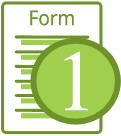November 26 2010 (Chris Moore)

It seems everywhere you turn these days, whether it’s the morning newspaper or if you visit a website…even here on LoanRateUpdate, you will see charts of the latest mortgage rates. So are the rates that are listed really the rates that are available to you?
The answer is a qualified yes, no, and maybe. The rates that virtually everyone quotes are generally rates that are available to those borrowers that have the best qualifications. Credit score, debt-to-income ratio, your financial assets and the house you are considering financing all play a role in determining that rate.
Together these factors paint a picture for a mortgage banker to assess the level of risk that the mortgage lender will have to take in order to lend you money for a house. So obviously the better your overall financial picture, the lower the mortgage rate will be.
Here’s an overview to help you paint a healthy financial picture:
Your Fico score:
FICO! FICO! FICO! You hear about it all of the time and it gets the most attention because it’s the one way that a lender can use to determine how well you pay off debt. Your credit score is probably the most important factor in determining interest rate so the higher your FICO score, the better the rate you will receive.
Your Debt Ratio:
Your debt-to-income ratio (DTI) determines how much home you can afford. Most mortgage companies want to see no more than 36% of your monthly bills going to such things as credit cards, installment payments, student loans and car payments. The lower these types of non-mortgage debts you have, the more room you’ll have for higher mortgage payment and the more home you’ll be able to buy. Not only that, low revolving debt can also get you a lower mortgage rate. Also remember, Fannie Mae is lowering their debt cap from 55% to 45% on December 13th, so get those credit cards paid down!
Your Assets:
An important part of your lenders decision will also be based upon what financial assets you own. Whether its money socked away in a savings account or a 401k account, a paid off car, or if you’re saving for your children’s college using a 529 plan, lenders are looking to see if there’s someway for you to pay your loan if something bad happens, like losing your job. Mortgage bankers see assets as wealth that you control. It’s your money, and your value, contributing to your net worth.
Your future new home:
The area that you’re thinking about purchasing your new home in can also have an effect on your mortgage rate depending on what the lender perceives as risk factors for that area. Is it an area that has been growing economically? Have other houses in the area been selling well and for reasonable prices? Is the home in good condition? If yes, homes in areas like these are seen as less of a risk to finance which can translate into a better mortgage rate.
So the answer to the above question and how it applies to you can depend on a combination of the factors above. Ultimately your mortgage rate can give you a sense of the level of risk your mortgage company is willing to take with you. And don’t forget, different lenders have different criteria, so if you’re quoted what seems to be a high rate, especially if you meet most of the criteria listed above, check around with different lenders. Two or three credit checks for the purpose of securing a mortgage loan won’t hurt your FICO score.
It may feel like a numbers game, but it’s a game that can save you thousands of dollars over the life of a loan.
Tags: mortgage loan, FICO, mortgage rate, finances, debt ratio, assets, mortgage lender, net worth, mortgage company, risk




